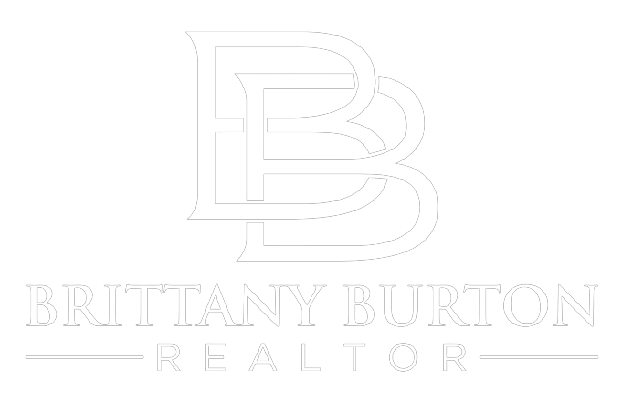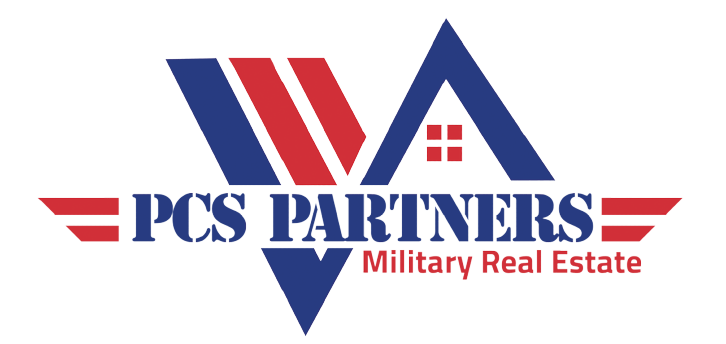The process of buying a first (or any) property can be nerve-wracking, not to mention downright expensive. While it may seem tempting to try and cut costs, investors should resist the urge to skip home inspections.
Why?
A home inspection helps buyers identify health and safety issues, defects and other necessary repairs that they should address with the seller before closing. It can also highlight items that may need to be fixed soon (such as an old roof, furnace, or water heater). Some items may be minimal and seem nitpicky; However, it is the job of the inspector to get as much information about the property as possible.
Think of a home inspection as an insurance policy. For investors, it is a necessary business expense. In some cases, an inspection can save a buyer from making a very costly mistake when purchasing.
Full transparency, the inspector can’t find all the issues with the home – for example, a leaky pipe in the wall. However, they will usually find evidence of issues and note them for further investigation.
The inspector follows a checklist. They may suggest additional inspections by other qualified professionals in other areas such as:
- Roof
- Attic
- foundation
- HVAC
- Sewer scope (important for a home with soil piping)
- line pipe
- pest control
Point blank, the inspector is an invaluable part of an investor’s buying team. But choosing a home inspector is not cut and dry and should be done carefully. So, let’s find a great inspector and what to do with the inspection report.
how to find a great inspector
A great inspector is worth its weight in gold. Hence, homebuyers should aim to find a reputable person familiar with the issues of homes in the area. It is a huge bonus if they are an investor themselves and can provide additional insight into the market as a whole.
Here’s how to create a list of inspectors to contact:
- Do a web search for: “home inspectors in [submarket], Create a shortlist of inspectors and check their reviews on BBB (Better Business Bureau), Yelp, Google and similar sources.
- Check online forums like BiggerPockets to find active inspectors in your area.
- Ask for recommendations from friends and family who have recently worked with a home inspector.
- Ask a real estate agent and/or property manager for referrals. Get a short list of three or four people they’ve used regularly.
- Ask other investors in the area. This is an easier team member name for most investors to share (as opposed to their realtor or deal finder).
More on home inspections from BiggerPockets
how to vet a home inspector
Choosing a home inspector can be difficult because there is no national certification process to become a home inspector, and requirements vary from state to state. For example, in some states only 60 hours of education are required to become a home inspector, while in others it is 400 hours.
There are professional organizations to which investors can turn to home inspectors with the right credentials. One such organization is the American Society of Home Inspectors (ASHI). Their members have strict guidelines and codes of conduct that they need to follow. ASHI inspectors must have performed at least 250 paid home inspections, passed exams, and kept up-to-date with best practices.
It’s also a good idea to ask to speak to references from the potential inspector’s previous clients. Some questions you should ask are: Did the inspector know what they were doing and seemed knowledgeable? How was the customer service, ie were they thorough and patient? Was the inspector on time? And, of course, how comprehensive was the report?
Even though references can be a valuable source of information, they aren’t really that important in this day and age. (And think about it—an inspector is only going to direct you to their happiest customers.) There are plenty of websites with reviews, including services like Yelp, Angie’s List, TaskRabbit, or Google. Those reviews will be more truthful than the reference chosen by the inspector.
If the Realtor suggests hiring home inspectors, this could be a conflict of interest. Realtors may be trying to be helpful, but at the same time, they have a vested interest in making the sale. Ultimately it will depend on the situation. If the investor truly trusts the Realtor to make a good referral, it will be in the best interest of the investor.
Remember, investors need to be looking for a “rockstar” prospector. They should choose a home inspector who has done more than just a three day course. Other red flags to watch for include: the inspector charges a low fee; The Inspector’s Company is not bonded and insured; the inspector wants to visit the property alone and not with the buyer; Or the inspector does not want to give a sample report.
Finally, not all research, credentials and references can be effective in finding a great inspector. It all depends on the situation, the investor and the inspector. But their due diligence shouldn’t reduce investors’ chances of finding the right inspector.
Additionally, investors need to find someone with whom they can build a long-term relationship. To save some time, they can do their homework and try to find answers to the following questions before hiring anyone:
Experience & Qualification
- What Kind of Certification and Training Do Home Inspectors Have?
- How long has he been a home inspector?
- What business were they in before? (if they are new to the business)
- What kind of experience do they have in the asset class the buyer is interested in?
- What kind of inspections do they do? (single-family, multi-family etc.)
- If it is an investment property inspection, are they the investors themselves and are the investors savvy? (This can double as a way to “take their mind” on the neighborhood and home as an investment.)
Location and Service Area
Where does the investor do the principal part of his business? Again, inspectors should be very familiar with the location and the asset type the investor is interested in purchasing.
specialty
- What do they observe?
- More importantly, what do they not observe?
- What additional inspections can they arrange, for a fee? Again, here’s a short list of things the buyer might want to add:
- Roof
- Attic
- foundation
- HVAC
- Sewer scope (important for a home with soil piping)
- line pipe
- pest control
Time
- How long does the inspection take?
- Can the buyer, their realtor, their property manager and their general contractors be present? If possible, make sure the contractor overlaps with the inspector at the end of the inspection. The inspector can go over the main issues that need to be fixed and the contractor can be sure to add them to the bid. Additionally, if the contractor sees anything they want a second opinion, the inspector is there.
- Is the inspector entering the home only once, limiting disruption to any occupants?
- How long will it take to prepare a written report? This is important in case there is an inspection objection deadline for the purchase agreement.
Cost
- What is the cost of an inspection and what is involved?
- What do they charge for add-on inspections?
scope
Will the inspectors send a sample of the types of reports they do? This is a situation where an investor always needs more information, not less.
when to call a home inspector
Once an investor is about 90% sure that they will buy a specific property, it is worthwhile to start looking for an inspector.
Why? They may actually use the inspection objection clause as a negotiating tool to outwit other buyers. Some have won many deals because they can complete an inspection and submit a resolution in five days or less, so the seller can rest assured that the buying process is not rushed.
Buy your first home with open eyes
Dodge the world’s most common financial trap! Learn from BiggerPockets CEO Scott Trench and podcast co-host Mindy Jensen how buying your home can destroy your wealth… or create more.
You’ve Received the Inspection Report… Now What?
After you’ve chosen a home inspector and inspected the home, you’ll need to deal with the report. Once the report is in the hands of an investor, they must review the findings and act quickly to decide whether or not they will proceed with the deal. The last thing a seller wants is to learn that the inspection took place and then have to wait days or weeks to find out whether the deal will stay together.
Here are some high-level steps to be taken once the report is received.
1. Post Inspection Review
Review the post-inspection with the inspector and if the report is unclear, ask:
- Do they recommend any additional inspections?
- Is there a template?
- What fire, water, health and safety hazards are present?
- What should be repaired first?
- What repairs do they think the seller should do now?
- What would they have done if they were about to buy this property?
- What else do they see that could be wrong?
- How much do they think the repairs will cost?
- Will the trees on the property be a hazard down the road?
2. Pass on the findings of the report
Investors should review the report’s findings with their realtor, property manager and contractor to determine whether they wish to continue pursuing the deal.
Inspection reports can sometimes seem really scary (especially on older homes), so investors should make sure they engage with their team to help sift through the details and determine What’s worth picking up and what’s a dealbreaker. Unless there is an actual absolute deal-breaker, the investor can move on to the next stage of the negotiation process.
3. Determine Who Should Be Accountable
Split the report into what the seller has to fix and what the buyer can fix.
A contractor can help the investor understand the cost of repairs, while a realtor can help develop the best negotiation strategy/approach with the seller.
If the home inspection is done thoroughly, there is no doubt that it will work as an advantage for the buyer. Buyers can use an inspector’s list (with pictures) of every scratch and nick with the home to negotiate with the seller. Let’s say 100 repairs are needed. The 10 biggest repairs the buyer can ask for will need to be taken care of by the seller. That way, the seller is more likely to agree to make repairs because it seems like a fair deal.
Sometimes the sellers are unable to bear the cost of repairs. That leaves the option of lowering the price. And, if the buyer is handy, they can save a little money on the purchase and do the work themselves.
4. Submit Objection Report to Seller
The investor needs to provide the inspection objection report to the seller as soon as possible.
By quickly getting over this due diligence hurdle with the seller they will build an enormous amount of goodwill and respect through the buying phase. Again, it is good practice to resolve inspections quickly (ideally, in five days or less). If the investor is not asking for any repairs but a huge discount, they should think about providing the inspection report and get the contractor’s bid to certify the seller.
5. Expect the Conversation
The seller will most likely return. Before accepting or rejecting the counter, the investor can take a pause and ask the seller this question (if they haven’t already): “What do you need to seal the deal?”
It’s like a Jedi mind trick – the seller must tell the investor exactly what they need to be comfortable moving forward.
6. Sign the inspection objection agreement
Buyer must sign an Inspection Objection and/or Inspection Settlement Agreement. The last thing they want is to see their hard earned money disappear because of a missing deadline or signature.
The inspection process can seem incredibly complicated, especially when there is a lot of “red ink” surrounding a major report. But choosing a home inspector and getting an inspection done can be a step in the right direction to securing the property.
And in fact, that “red ink” can turn into the green one you keep in your pocket. Remember, not only is this report part of an investor’s purchase insurance policy (along with the appraisal), but the home inspection report is also a great negotiating tool for a better deal.
Note by BiggerPockets: These are the views expressed by the author and do not necessarily represent the views of BigPockets.





